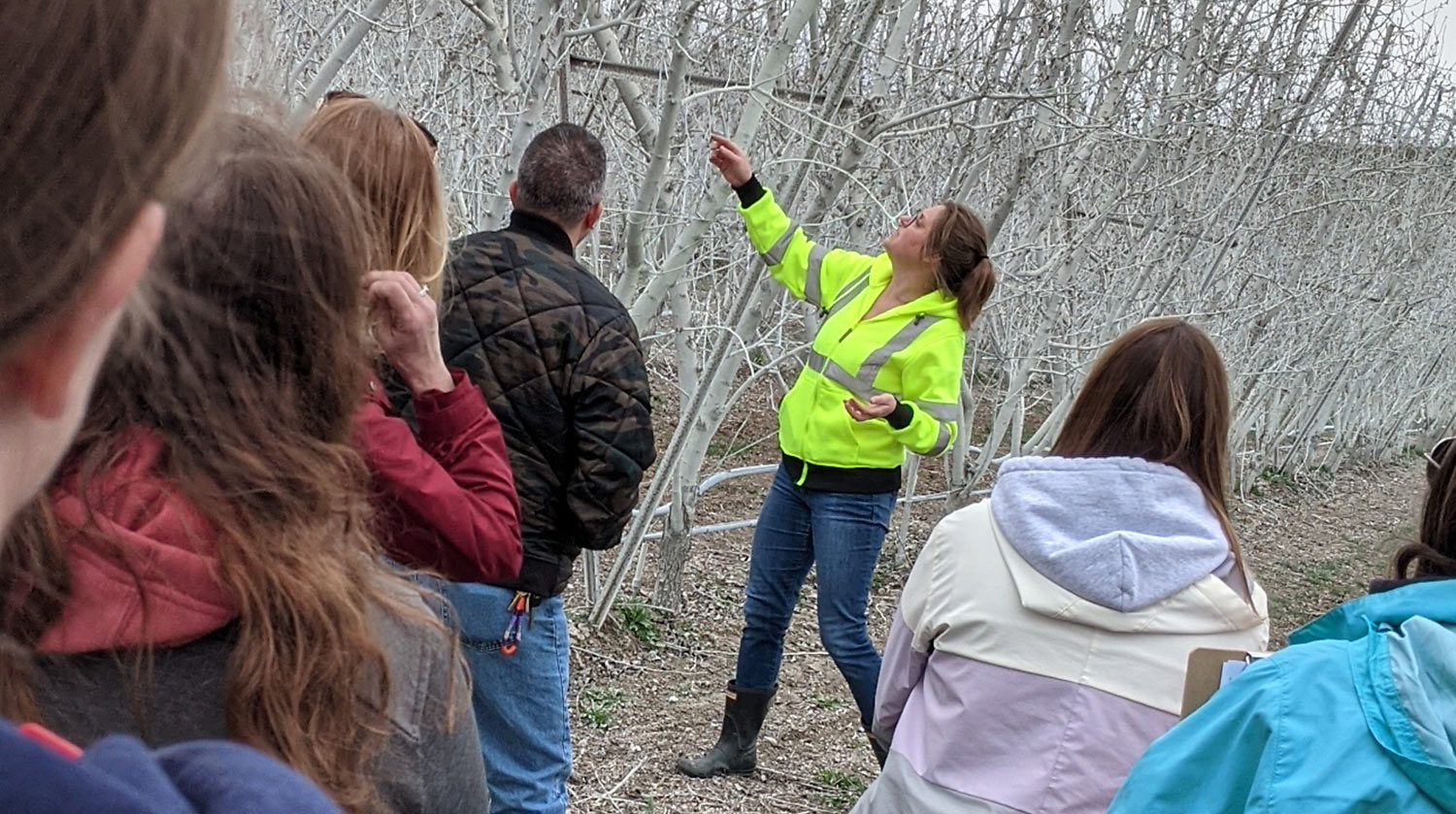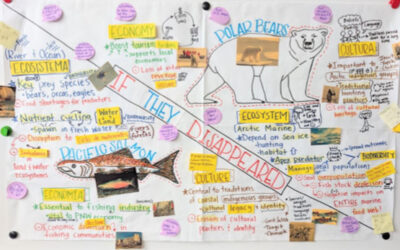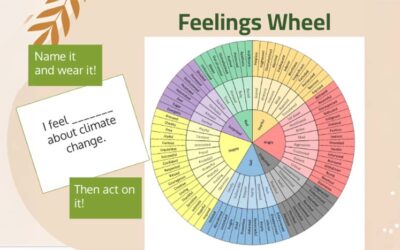Teachers standing among the hedgerows of Natural Selection Farms (NSF) compost in various stages of breaking down took a collective deep breath. “Look at the color – it smells amazing!”
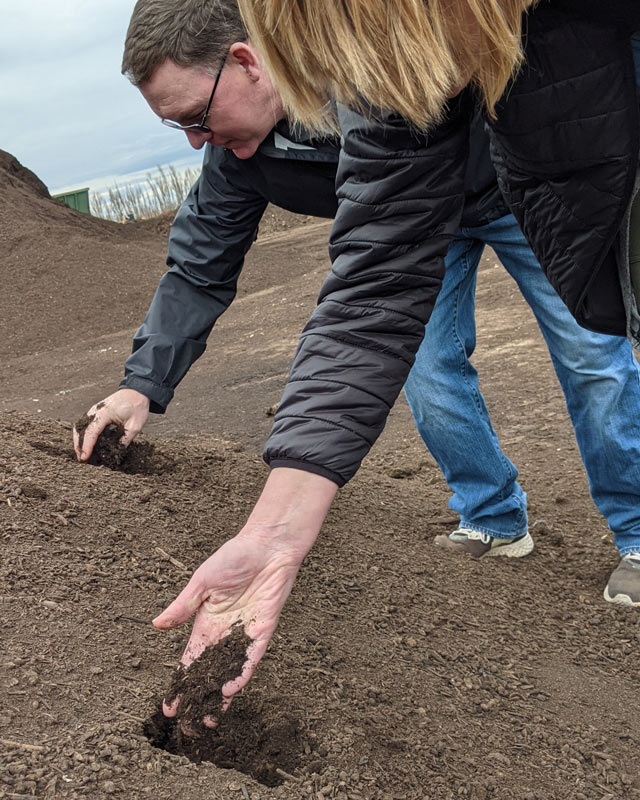
Teachers dig in to compost at NSF
Compost is one strategy for managing food waste, a major contributor to greenhouse gases, and no one in the Yakima Valley does that at the scale and quality of NSF, one of the largest permitted compost facilities in the state. Thanks to the support of NSF and ESD 105, 18 teachers had the opportunity to dig in to the solutions for food waste mitigation.
Before journeying to the compost facility, educators spent a few hours learning about carbon cycles, food production from farm to fork, and personal rules to reduce food waste. After a delicious lunch, participants measured the amount of waste (uneaten food) and calculated the equivalent CO2 emissions (about 10 kg CO2 eq). Teachers were seen capturing the uneaten but still edible food to save for later and remove it from the waste stream. “I just can’t throw it away!”
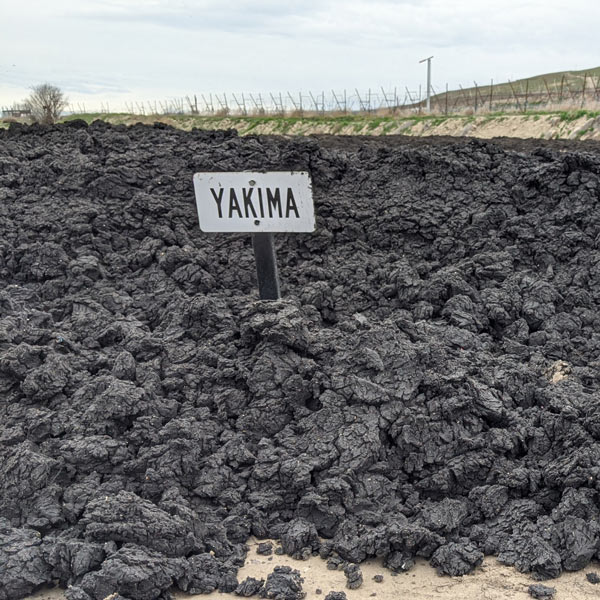
Biosolids for land application
Out at the farm, participants experienced the rich compost, the fields, orchards, and vineyards on which it is applied, and the trimmings from the trees and other crops that went back into the compost piles. The cycle wouldn’t be complete without recipes, and NSF has the perfect recipe for each need from home gardens to industrial agriculture production. Participants also had the opportunity to learn more about biosolids and the benefits of cyclic waste management systems for both farmers and public health.
Shelly Durfey, fourth-generation farmer at NSF, lined up the best speakers and site visits for these educators, exposing them to innumerable careers, agricultural technologies, and the complexities of food economy. “The stereotype of an old white man in dirty overalls with a hayseed in his mouth has been pushed back in my mind!”

